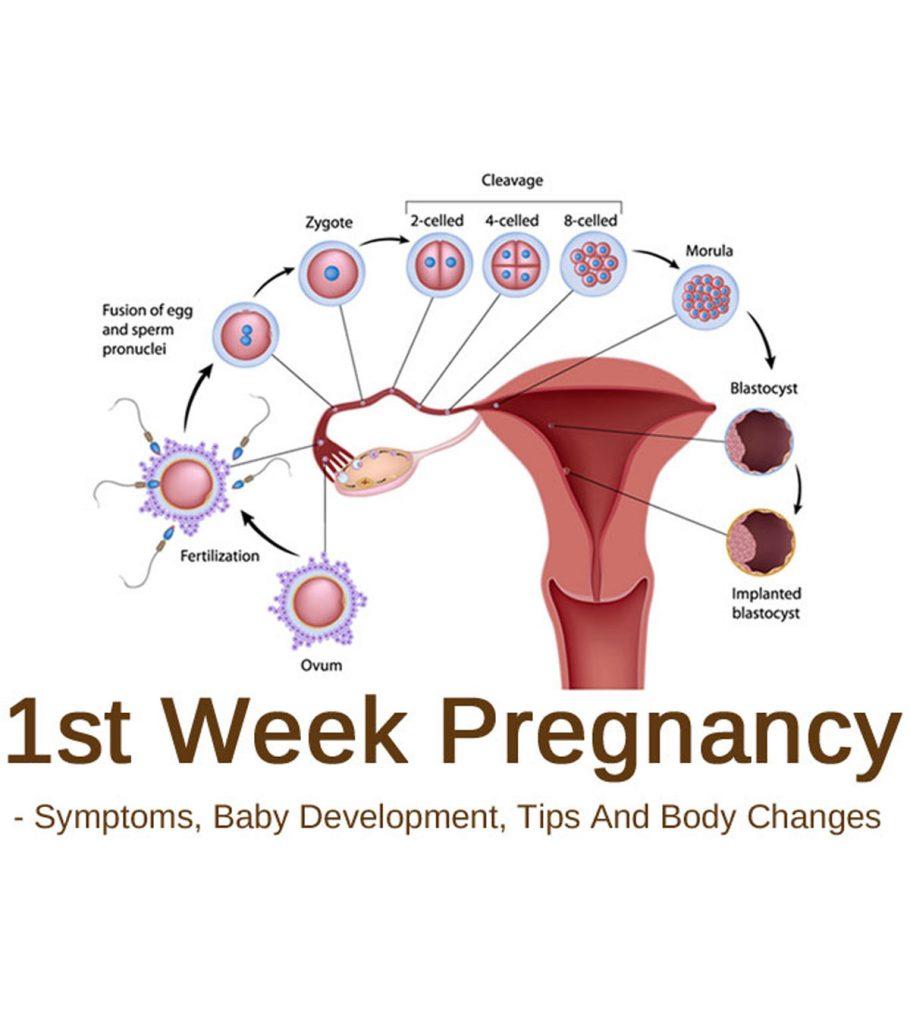
Week One of Pregnancy: The Beginning of a New Life
The journey of pregnancy begins with a single moment of conception, marking the start of a transformative experience that will forever change the lives of both the mother and the child. Week one of pregnancy, although often unnoticed, sets the stage for the remarkable development that will unfold in the weeks and months to come.
Conception and Fertilization
Week one of pregnancy is defined as the period from the first day of the woman’s last menstrual period (LMP) to the day before ovulation. During this time, the body prepares for the potential fertilization of an egg.
The menstrual cycle typically lasts around 28 days, with ovulation occurring approximately 14 days before the start of the next period. During ovulation, a mature egg is released from one of the ovaries and travels down the fallopian tube.
If sperm are present in the fallopian tube, they can fertilize the egg. This process, known as conception, usually occurs within 24 hours of ovulation. The fertilized egg, now called a zygote, begins to divide rapidly as it travels through the fallopian tube towards the uterus.
Implantation
Around six to eight days after fertilization, the zygote reaches the uterus. It has now developed into a blastocyst, a hollow ball of cells with an inner cell mass and an outer trophoblast layer.
The trophoblast layer attaches to the uterine lining, a process known as implantation. This occurs around day 10-12 after ovulation. The inner cell mass will eventually develop into the embryo, while the trophoblast will form the placenta.
Placenta Formation
The placenta is a vital organ that develops during pregnancy. It connects the mother’s circulatory system to the developing fetus, allowing for the exchange of nutrients, oxygen, and waste products.
The placenta also produces hormones that support pregnancy, such as human chorionic gonadotropin (hCG). hCG is responsible for the positive result on a pregnancy test.
Hormonal Changes
Week one of pregnancy is characterized by significant hormonal changes. The rising levels of hCG trigger the production of progesterone and estrogen, which are essential for maintaining the pregnancy.
Progesterone helps to thicken the uterine lining and prevent the uterus from contracting. Estrogen prepares the breasts for milk production and stimulates the growth of the uterus.
Symptoms
Most women do not experience any noticeable symptoms during week one of pregnancy. However, some may experience mild cramping or spotting as the fertilized egg implants in the uterus.
What to Expect
During week one of pregnancy, it is important to:
- Take a pregnancy test: If you suspect you may be pregnant, take a home pregnancy test or visit your doctor for a blood test.
- Start prenatal care: If you are pregnant, schedule an appointment with your healthcare provider as soon as possible.
- Make healthy lifestyle choices: Eat a balanced diet, exercise regularly, and avoid alcohol and smoking.
- Take folic acid: Folic acid is an essential nutrient that helps prevent birth defects.
Conclusion
Week one of pregnancy is a pivotal moment that marks the beginning of a new life. Although often unnoticed, this week sets the stage for the remarkable journey that lies ahead. By understanding the processes that occur during this time, women can make informed choices to support a healthy pregnancy and the well-being of their unborn child.